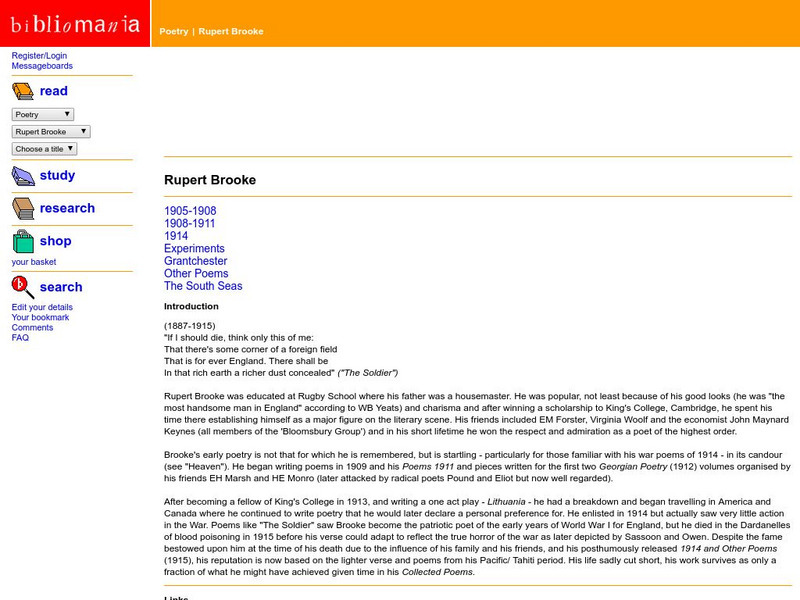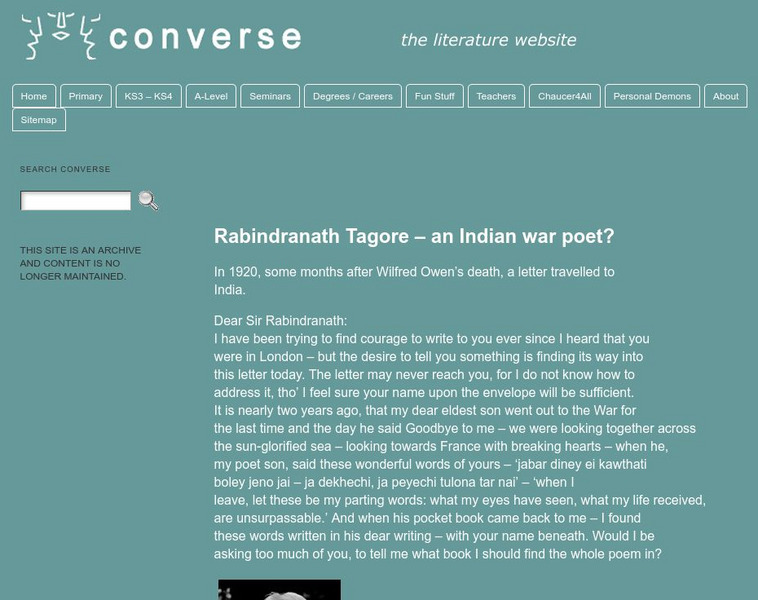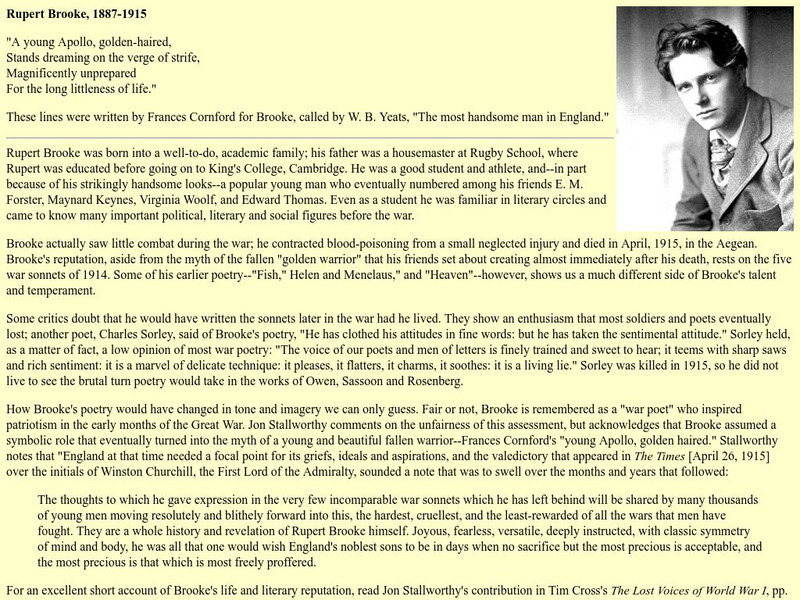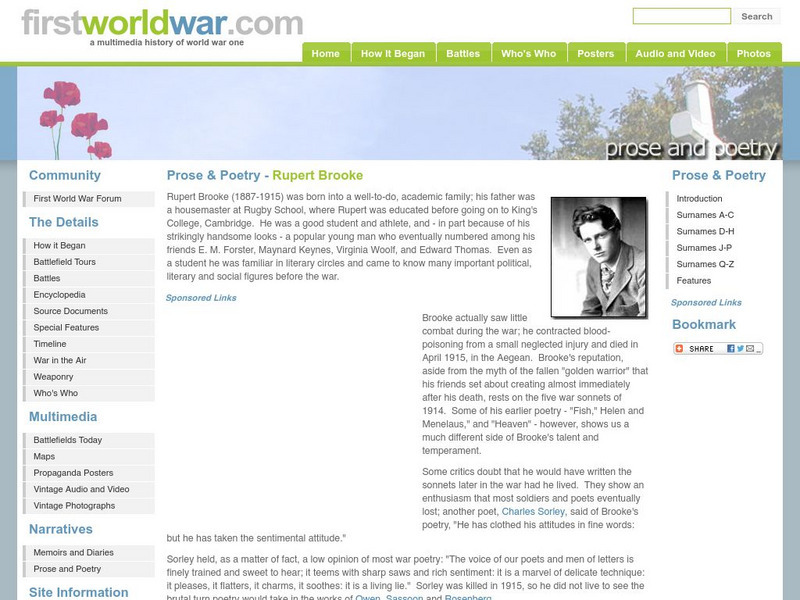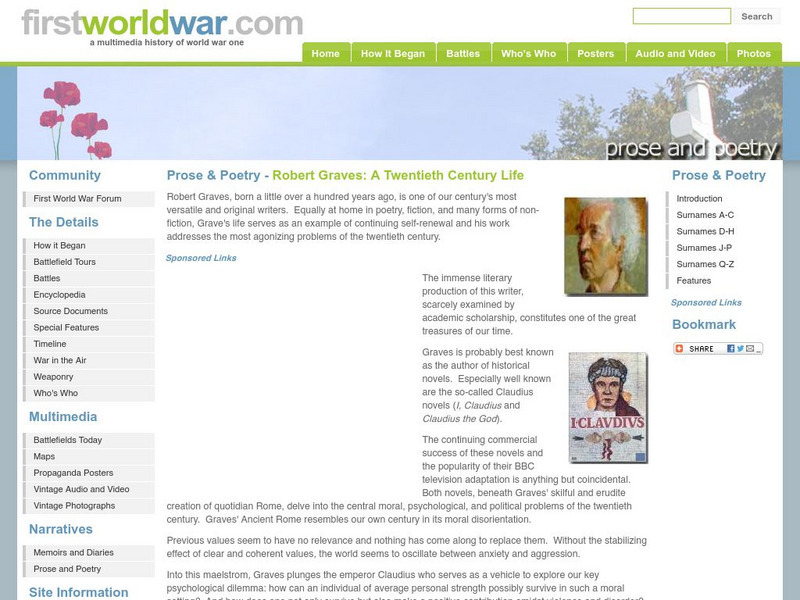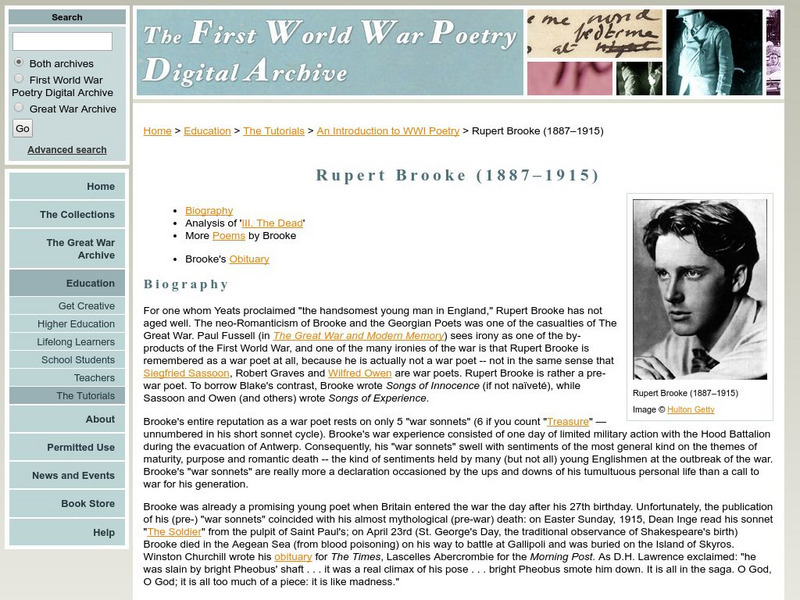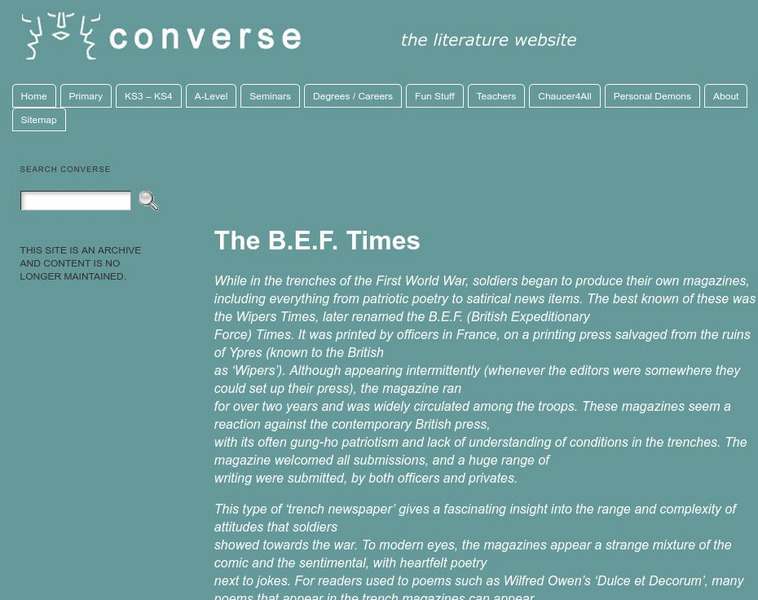University of Oxford (UK)
University of Oxford: First World War Digital Archive: Photographic Collection
This photographic archive contains images captured by official, press, and amateur photographers during the First World War. Search the archive or use the suggested keywords to view the images.
Bibliomania
Bibliomania: Poetry by Rupert Brooke
Bibliomania provides a brief biography of the World War I poet Rupert Brook (1887-1915) and links to full-text poems.
University of Cambridge
University of Cambridge: Rabindranath Tagore an Indian War Poet?
Rabindranath Tagore won the Nobel Prize winner for literature but is not often mentioned today. He was a well known poet during World War I and inspired many soldiers on the front lines. This article begins with a letter from a mother...
Emory University
Rupert Brooke, 1887 1915
This biographical note about the World War I poet Rupert Brooke also provides links to full texts of prewar and wartime poems: "A Channel Passage," "The Fish," "Heaven," Helen and Menelaus," and "The War Sonnets."
First World War
Prose & Poetry: Rupert Brooke
A brief biography and look at Brooke's (1887-1915 CE) life and works, including some references to print sources as well.
First World War
First World war.com: Prose & Poetry Robert Graves: A Twentieth Century Life
This detailed article covers all of Graves' work, not just his war writing. Although it lacks a bibliography, it is written by a Graves scholar from the University of Maryland, and mentions specifically the work of others studying Graves.
Other
Aftermath: The Poetry
The poems of the war and its aftermath are presented here, some of them with commentary.
University of Oxford (UK)
Oxford University: Rupert Brooke
This marvelous site provides, in addition to an informative biography, an obituary by Winston Churchill, "The Dead" (a poem by Brooke) with helpful notes, and links to a number of other poems like "Treasure" and "The Soldier."
University of Cambridge
University of Cambridge: The b.e.f. Times
While in the trenches during WWI, soldiers began to produce their own magazines. The best known of these was the Wipers Times, later renamed the B.E.F. (British Expeditionary Force) Times. It was printed on a printing press salvaged from...

